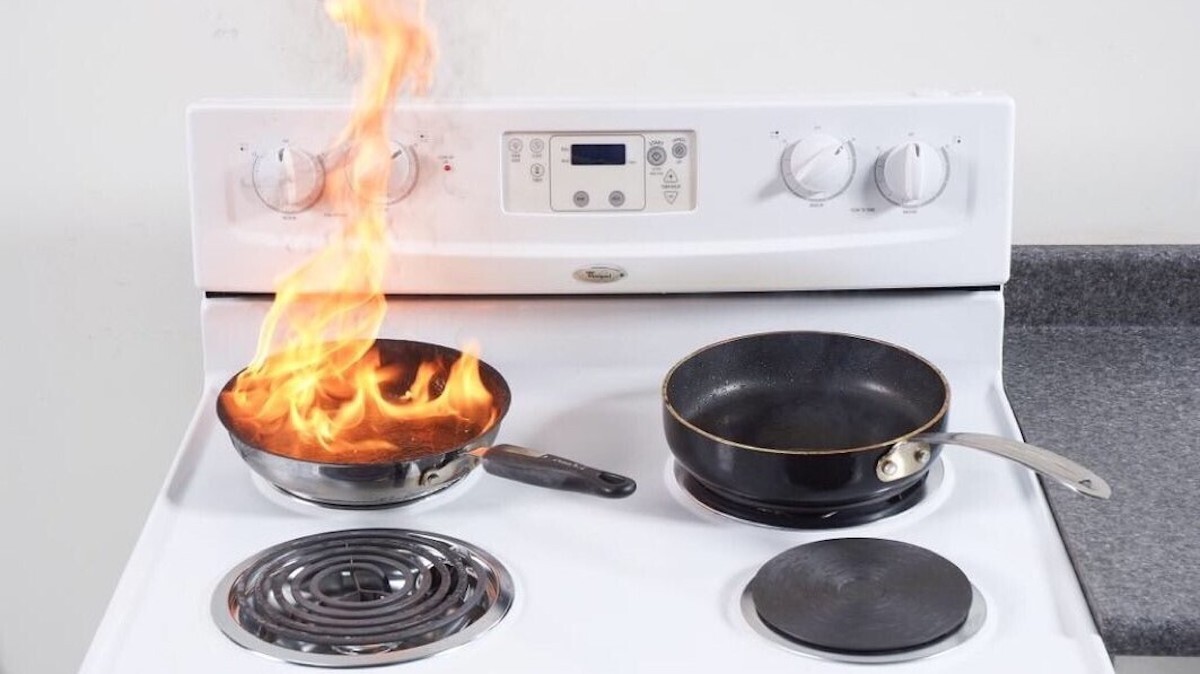Thanksgiving can be one of the most dangerous times of the year, especially when it comes to cooking with hot oil, according to the National Fire Protection Association.
With home cooking such a big part of the holiday's tradition, it should be no surprise that there are three times the amount of cooking fires on Thanksgiving compared to the daily average. Christmas Day and Christmas Eve ranked second and third, according to the NFPA. The NFLPA said there were 1,400 home cooking fires on Thanksgiving in 2019 that needed a response from a fire department.
Cooking is always a dangerous process, even on a non-holiday. Cooking was the source of nearly all reported home fires and more than two out of every five home fire injuries from 2015 to 2019. It was also the second leading cause of home fire deaths (20%) during that span. Unattended cooking was by far the leading contributing factor in cooking fires and fire deaths.
The leading cause of fires in the kitchen is unattended cooking. Rachel Neutzler of the Harris County Fire Marshall's Office said cooks should be especially cautious when frying and roasting.
"If you are simmering, baking or roasting food, check it regularly and stay in the home," Neutzler said in an email to the Houston Daily. "Use a timer to remind you that you are cooking. Also, keep anything that can catch fire – oven mitts, wooden utensils, food packaging, towels, curtains – away from your stovetop. Lastly, have a 'kid-free zone' of at least three feet around the stove and areas where hot food or drink is prepared or carried."
Here are more safety tips the NFPA offers when it comes to frying on the stovetop. They include keeping an eye on what you fry; and if you see wisps of smoke or the oil smells, immediately turn off the burner and/or carefully remove the pan from the burner. Heat the oil slowly to the temperature you need for frying or sautéing. Smoke is a sign the oil is too hot. Gently add food to the pot or pan so as not to splatter the oil.
Cooks should also keep the lid beside the pan. Should a fire occur, the NFPA advises sliding the lid to cover the pan and turning off the burner. Do not remove the cover. Allow the pan to cool.
Remember, never throw water on an oil fire.
If the fire is not extinguished or it's not possible to cover the pan with a lid, get everyone out of the home and call the fire department from outside.
There are also general safety tips to follow. The top 10 safety tips, according to the NFPA are:
Stay in the kitchen when you are cooking on the stovetop so you can keep an eye on the food;
Stay in the home when cooking your turkey, and check on it frequently;
Keep children away from the stove;
Make sure kids stay away from hot food and liquids;
Keep knives out of the reach of children;
Be sure electric cords from an electric knife, coffee maker, plate warmer or mixer are not dangling off the counter within easy reach of a child;
Keep matches and utility lighters out of the reach of children;
Never leave children alone in a room with a lit candle;
Keep the floor clear so you don’t trip over kids' toys, pocketbooks or bags;
Make sure your smoke alarms are working.
According to the National Highway Safety Association, more than 40% of holiday car accidents involve alcohol. Do not drink and drive.

